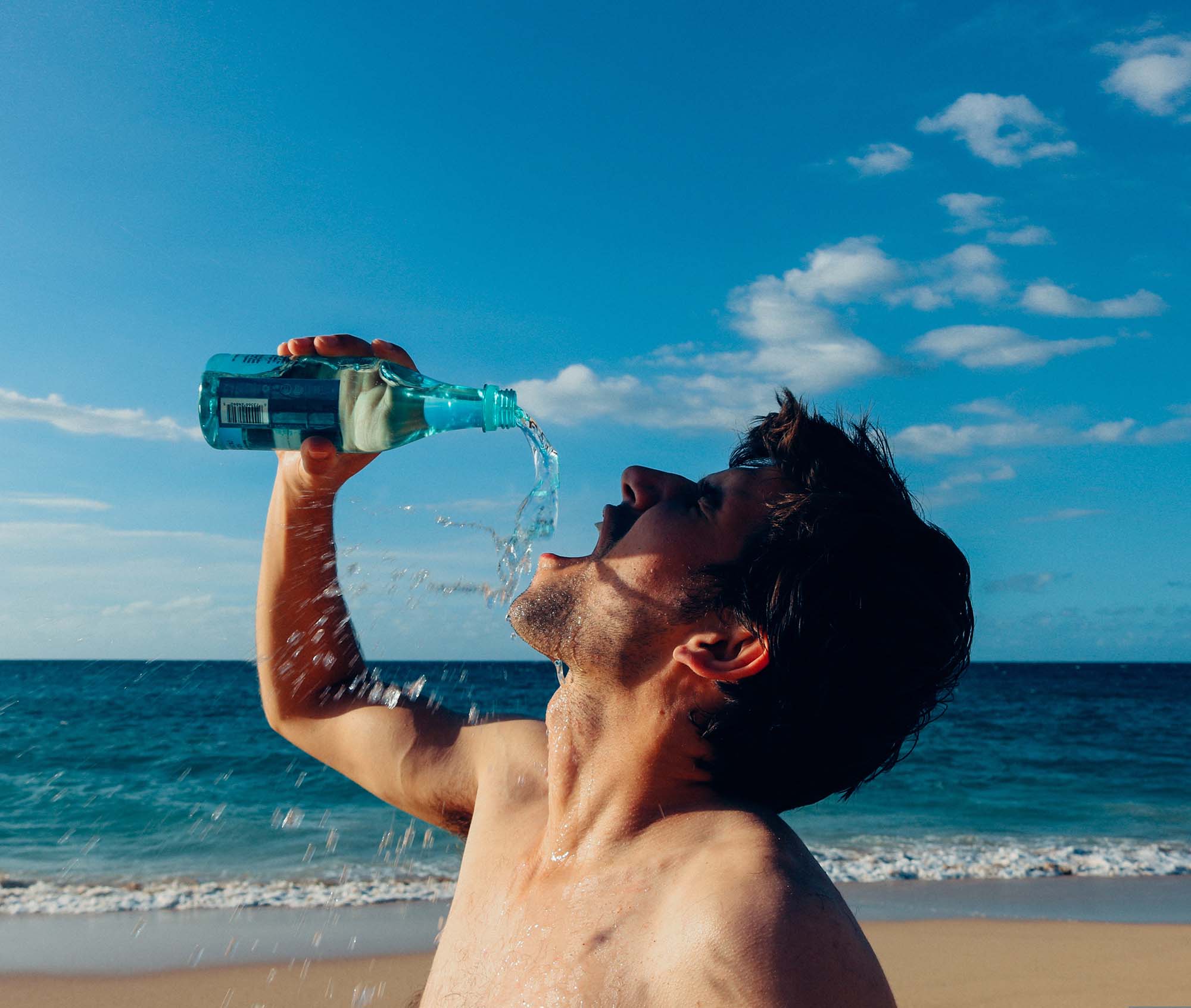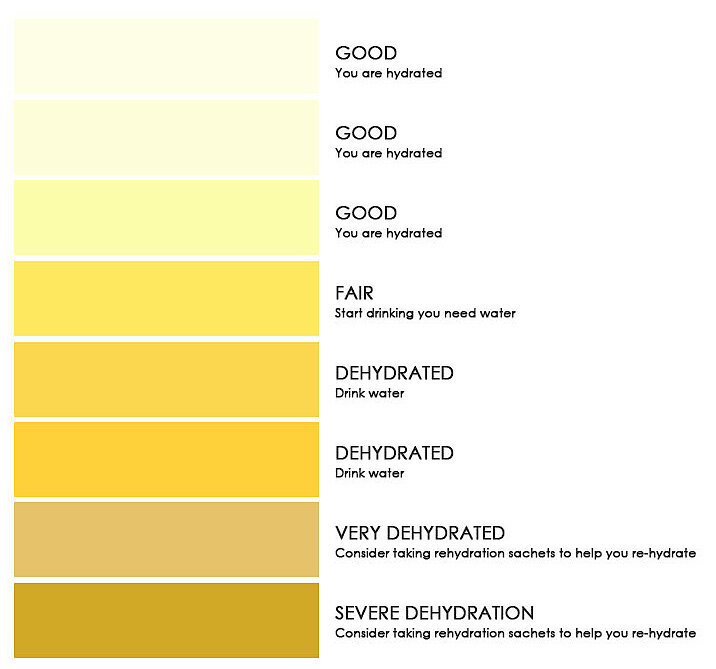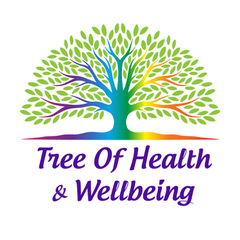
ARE YOU DYING OF THIRST?
Healthy Hydration
Do you make the mistake of waiting until you feel thirsty before drinking water? Thirst isn’t just a signal from your body indicating that your body water level is depleting, it is a warning that you are dehydrated, and you need to drink soon! By the time you feel thirsty your body would already have lost 1% of its water. It is HUGELY important to drink water at regular intervals, so you don’t get dehydrated.
On arrival at one of our Tree of Health and Wellbeing clinics, for the first time, you will undergo an extensive consultation to ensure the treatment is right for you… one of the questions you will be asked so that we can see your lifestyle choices, is how much water do you consume a day? ….80% of our clients will say not enough and on delving a little more it seems the intake for most is less than one litre a day.
All our questions are developed to enable us to listen to your views on your health and ensure we identify the correct way to proceed to assist and support you in enhancing or restoring your health and well-being. What we are NOT is the “nag Police”, as we believe that people nowadays are inundated with healthy lifestyle choices, but what we can do is offer so advice where a few tweaks can make all the differences. This has been particularly seen in alleviating the painful symptoms of Gout.
As part of our aftercare following a treatment the importance of water is emphasised and returning clients make their own observations on how consuming more water on a regular basis has helped with their individual conditions and/or well-being.
This blog helps you determine approximately the amount of water you must drink each day to avoid dehydration. Remember, this is only an estimate. The actual amount one needs depends on many factors like exercise, illness and fluid content in dietary intake. Pregnant and breast-feeding women need to drink additional fluids to stay hydrated.
Important Water Facts:
- Human body is made up of almost 60%-70% water.
- Beverages like Tea, Coffee and all alcoholic drinks are all dehydrating fluids and will eliminate water from your body. So, if you are thirsty make sure you are not drinking any dehydrating fluid.
- Drink a glass of water before a meal. It not only controls your eating and helps to keep your weight in healthy range but also helps to protect your stomach wall from the harmful effects of digestive acids.
- Drinking enough water helps you to lose weight because without water the body can’t metabolise fat adequately.
- The symptoms of dehydration include headache, stomach-ache, behavioural changes, depression.
- 22%-30% loss of total body water can lead to coma and death

So, as you can see above water is essential for life and it is very important to get the right amount of fluid to be healthy. However, there are lots of mixed messages about how much, and what to drink and this can be confusing. Do I really need to drink 8 glasses of water on top of all my other drinks? Is it true that tea and coffee do not count towards my fluid intake? The answer to both these questions is no!
This blog also looks at why fluid is important, the effects of different drinks on health, and the needs of particular groups of people in the population. The information here is generally for healthy adults.
Why do you need water? Your body is nearly two-thirds water and so it is really important that you consume enough fluid to stay hydrated and healthy. If you don’t get enough fluid you may feel tired, get headaches and not perform at your best. ‘Fluid’ includes not only water from the tap or in a bottle, but also other drinks that give you water such as tea, coffee, milk, fruit juices and soft drinks. You also get water from the food you eat -on average food provides about 20% of your total fluid intake.
How much do you need? The amount of fluid you need depends on many things including the weather, how much physical activity you do and your age, but European recommendations suggest 1.6L of fluid per day for women (about 8 x 200ml glasses) and 2 litres of fluid per day for men (about 10 x 200ml glasses). This is on top of the water provided by food you eat. You can get water from nearly all fluid that you drink, apart from stronger alcoholic drinks such as wine and spirits.
How can I tell if I am getting enough water? Your body has special mechanisms to make sure you stay hydrated. Feeling thirsty is your body’s way of telling you that you need to drink more. However, the easiest way to spot that you might not be getting enough water is if your urine is a dark yellow colour during the day. If you are getting enough water your urine should be a pale straw colour. So, if it is darker than this or if you are urinating infrequently or passing very small amounts of urine, then you probably need to drink some more fluid. You also need to drink more if it is hot, or your temperature is high due to physical activity or illness.
Can you drink too much? Yes – drinking excessive amounts of fluid is not helpful and, in rare cases can be dangerous. If you are passing urine frequently and your urine is very pale, you may be drinking more than you need.
Does it matter which drinks you choose? When you choose your drinks, it is important to be aware that although they all provide water, and some also contain essential vitamins and minerals, they may also provide energy (calories). These calories contribute to your daily calorie intake in the same way as those from the foods you eat. It is also important to look after your teeth, and consuming sugar-containing drinks too often can potentially harm your teeth, especially if you don’t brush teeth regularly with fluoride toothpaste. It is also important to be aware that some drinks are acidic (e.g. fruit juice and carbonated drinks) and that this may cause dental erosion (damage to tooth enamel) if they are consumed frequently. For children, the use of a straw lessens the contact with teeth.
Drinking water is a great choice because it delivers fluid without adding calories or potentially damaging teeth.
Drinking tea or coffee also delivers water, and even though these drinks can contain caffeine, in moderate amounts caffeine doesn’t affect hydration. Pregnant women are advised to consume no more than 200mg or caffeine a day. This is equivalent to about two mugs of instant coffee or about two and a half mugs of tea. Other hot drinks such as herbal teas, hot chocolates and malted drinks can provide water. If these drinks are sweetened with sugar, it increases their calorie content. The sugar also increases their potential to damage teeth if good dental hygiene is not practiced.
Milk contains lots of essential nutrients such as protein, B vitamins and calcium, as well as being a source of water. However, it can also contain saturated fat and so it’s a good idea for adults and older children to choose semi-skimmed (less than 2% fat), 1% or skimmed milks. For children between the ages of one and two years, the recommended milk is whole milk. From two years onwards semi-skimmed milk can be introduced gradually. Skimmed and 1% milks are not suitable for children until they are at least five years old because they have less vitamin A and are lower in calories.
Fruit juices and smoothies give you water plus some vitamins, minerals and natural plant substances from the fruit. Smoothies may also contain pureed fruit, which adds fibre. These drinks can also count towards your 5-a-day. One 150ml glass of fruit juice counts as one portion, and smoothies that contain at least 150ml of fruit juice and 80g crushed/pulped fruit count as two portions. Because fruit juices and smoothies contain sugar (and therefore calories) and can be acidic, they can potentially harm teeth.
Soft drinks are a source of water but, if they contain sugar, this adds to your calorie intake and the sugar can potentially damage teeth if the drinks are consumed frequently. It’s a good idea to limit consumption of standard sugar-containing soft drinks and to choose lower sugar or sugar-free (low calorie) versions instead.
Alcoholic drinks contain water, but drinking alcohol increases the amount of water you lose as urine, so drinks with a high alcohol content, such as wines and spirits, are not the best choice to stay hydrated. Normal strength beers, lagers and ciders also cause an increased loss of water as urine. However, because they are more dilute, drinking them causes a net gain in water overall. It is still important to keep alcohol consumption within the recommended limits (no more than 14 units per week for both men and women).
Food – it may be a surprise to learn that we get on average 20% of our total water intake from food! Some foods have a high water content, especially fruits and vegetables, which are usually more than 80% water. Foods like soups and stews, which have lots of water added during preparation, also are a source of water. So food can provide extra water, on top of the 6-8 glasses of fluid you should drink a day.
Physical activity also increases the amount of fluid you need to consume in order to replace the water you lose as sweat. Water is fine for rehydrating after the kind of moderate exercise that most active people choose, and the majority of active people do not need special sports drinks to stay hydrated. However, for high intensity exercise that lasts more than 40 minutes or so, drinks with a little added sugar and sodium (salt), such as sports drinks or homemade versions, may be better at replacing the extra fluid lost as sweat.
Convinced……You need to drink lots of water!


